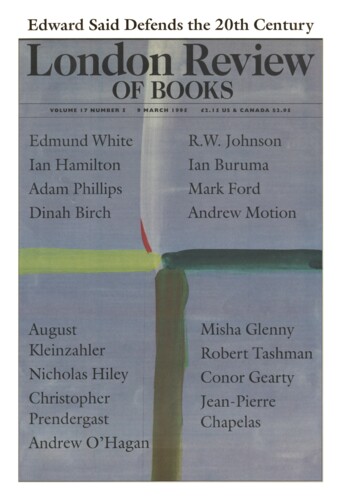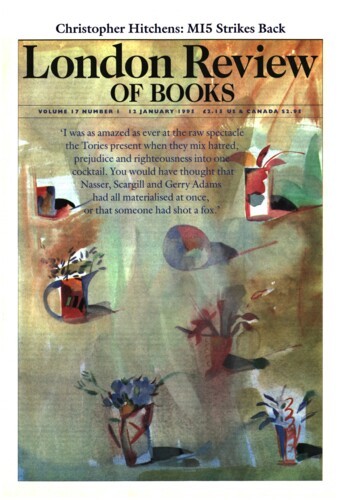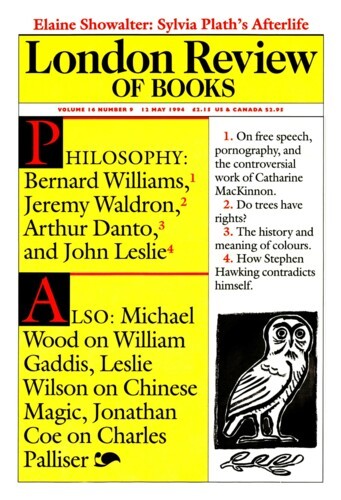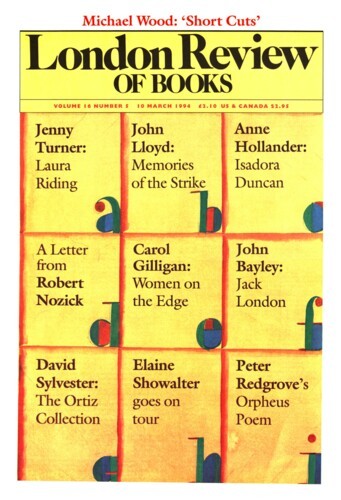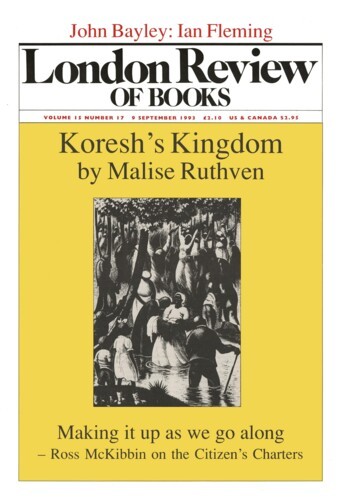His v. Hers
Mark Ford, 9 March 1995
The final section of Paul Bowles’s most famous novel, The Sheltering Sky, is prefaced by a quotation from Kafka that encapsulates the narrative trajectory of just about everything Bowles has ever written: ‘From a certain point onward there is no longer any turning back. That is the point that must be reached.’ With obsessive frequency Bowles’s short stories and novels feature characters propelled beyond the boundaries of their own cultural milieux towards realms they can neither control nor comprehend, and in which even their sufferings become meaningless. In one of his earliest stories, ‘A Distant Episode’, a professor of linguistics investigating Arabic dialects is captured by a band of Reguibat nomads, who beat him, cut out his tongue, and drape him with strings of empty tin cans. He is forced to perform a ridiculous dance for their amusement, and in time grows accustomed to his role as the tribe’s jester. When he finally escapes, rather than attempting to return to Western civilisation, he immediately flees back into the wilderness.
